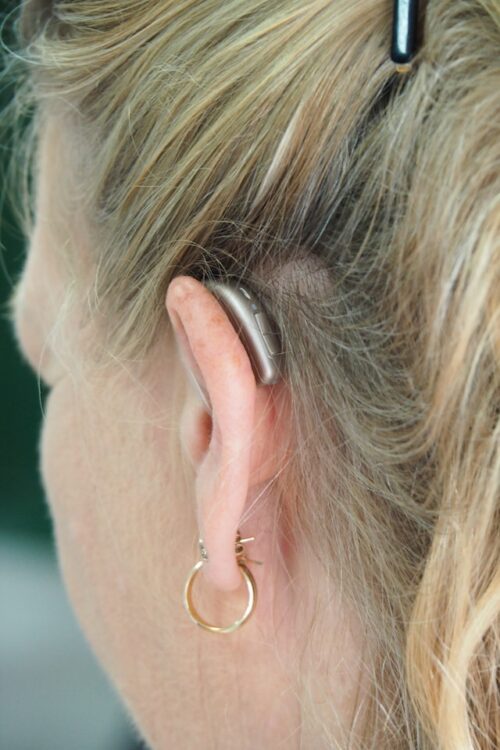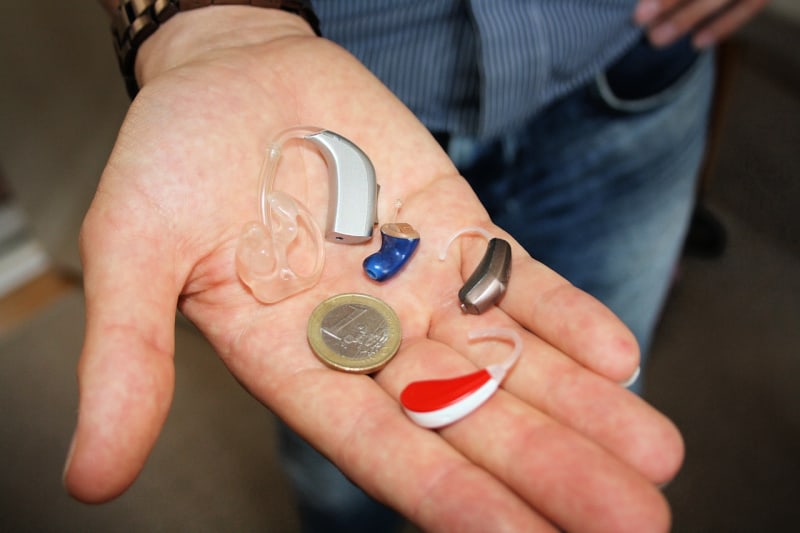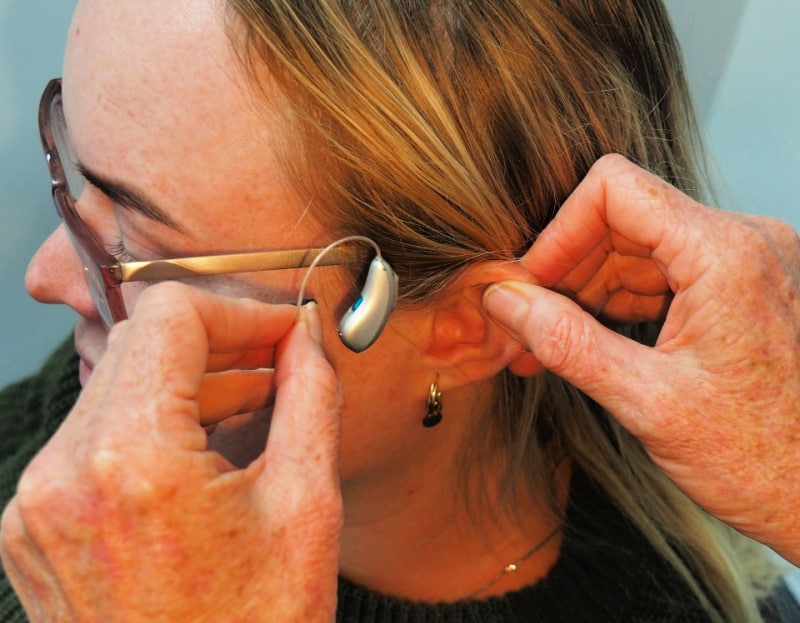If living with tinnitus, you know how disruptive that ringing sound in your ears can be – and lovers of travelers, even more so! Read on as we answer the question: Do hearing aides help with tinnitus?
Do Hearing Aids Help With Tinnitus?
Table of Contents
Do you experience a ringing sound in your ears? Do you often adjust the volume of your surroundings, trying to drown it out? Then, you are probably ready to do anything to find relief. When your tinnitus is at its worst, your quality of life can be affected in a variety of ways.
Tinnitus is more than a ringing in your ears and more than a temporary annoyance. It is a common condition that affects many people all over the world (approximately 10-15 percent especially older adults) — including one of my best friends.
Do hearing aids help with tinnitus? Below you can find out everything you need to know to decide if this is an option. Read along to learn more!
This post contains affiliate links. If you click through and buy, we may receive a commission. Thanks for helping to support TravelingInHeels.
What is Tinnitus?

Tinnitus is usually caused by an underlying condition, such as age-related hearing loss, an ear injury, or a problem with the circulatory system.
According to MayoClinic.com, “Tinnitus can be caused by a number of things, including broken or damaged hair cells in the part of the ear that receives sound (cochlea); changes in how blood moves through nearby blood vessels (carotid artery); problems with the joint of the jaw bone (temporomandibular joint); and problems with how the brain.”
My friend’s tinnitus was caused after going target shooting with a friend. She only wore earplugs and likely needed more ear protection, such as noise-canceling headphones for shooting. Now she is struggling with finding the best hearing aid for her situation.
Different Types of Hearing Aids

Hearing aids are available in a variety of designs and types based on individual needs and preferences. Each type functions in a slightly different way and varies in size, shape, and features.
- Behind-the-ear (BTE) hearing aids are the most common and work by amplifying sound and sending it into the ear canal through a speaker.
- In-the-ear (ITE) hearing aids are slightly smaller and fit directly inside the ear canal. Then there are Receiver-in-the-ear (RITE) hearing aids which are also small and fit inside the ear canal, but the main difference is they don’t have the bulky plastic casing around the outside like BTE hearing aids.
- Canal hearing aids are the smallest of the three and are custom-made and fit deep inside the ear canal. Finally, IIC or Invisible In-The-Canal hearing aids are designed to be unnoticeable and fit deep.
Each type of aid offers slightly different features, so it is important to talk to your audiologist about which type is best for you.
Benefits of Hearing Aids
Hearing aids are a great way to improve the lives of those with hearing loss. These allow those with hearing loss to communicate more effectively and participate in activities they would otherwise be unable to. It also provides safety to deaf individuals by allowing them to detect danger more quickly by being able to hear sound from further away.
With the use of hearing aids, those with hearing loss are able to become more socially active and participate in activities. This helps with mental health and allows those with hearing loss to be more independent.
In addition, it can improve concentration as it reduces background noise levels and allows the user to focus more on the task at hand. Finally, look for hearing aids for sale to improve quality of life by providing the user with a more natural hearing experience that optimizes their listening experience.
Link Between Hearing Loss and Tinnitus
With hearing loss, oftentimes, people experience tinnitus, a constant ringing, buzzing, or whistling sound in their ears or heads. Tinnitus is caused by damage to the small nerve hairs in your inner ear, resulting in hearing loss. This loss of nerve hairs prevents the brain from correctly interpreting sounds, resulting in tinnitus.
Achieving Relief Through the Use of Hearing Aids
Hearing aids can provide tinnitus relief by amplifying sound signals and improving the clarity of sound. They also help to reduce background noise, making it easier for people to hear and understand conversations. Hearing aids can help function in a variety of settings, including at home and in public places.
Available in a variety of sizes and styles, hearing aids can fit one’s individual needs. They are also easy to use and require minimal maintenance.
Hearing aids can drastically improve one’s quality of life, providing immeasurable relief. For those with hearing loss, it offers the opportunity to live life to the fullest, restoring normal functioning and allowing them to engage with their environment.
Drawbacks to Hearing Aids

First, the relief from tinnitus may only be temporary and could return after several weeks. Second, wearing hearing aids can be uncomfortable resulting in further aggravation of the symptoms over time.
Third, the cost of hearing aids may be prohibitive, with no guarantees to be effective. There is a risk that the increase of sound from the hearing aid could worsen the symptoms in some cases.
Finally, due to the complexity of the tinnitus condition, hearing aids may not be appropriate and could worsen the symptoms instead of relieving them. All these factors point to the fact that the use of hearing aids to treat tinnitus needs to be approached with caution.
Latest Advancements in Hearing Aids
With the latest advancements in hearing aid technology, many people can also now get help to manage tinnitus, a condition that causes a ringing in the ear. There are many types of hearing aids available that are designed to help with tinnitus, such as noise generators, sound masking devices, and sound therapy devices.
These devices all work differently, but all have the potential to make life easier for those who suffer from tinnitus. New technology is constantly being developed to improve the way in which tinnitus is managed, so be sure to stay up to date on any advancements being made.
With the right hearing aid and management techniques, tinnitus can be managed and treated effectively.
Learn if Hearing Aids Help With Tinnitus
Hearing aids help with tinnitus, yet, more research is needed to determine their true effectiveness. Talk to your doctor to learn more about tinnitus causes and treatment options, including hearing aids.
With the help of a professional, you can find the relief you need. Get started on your journey to silence and improved well-being today.
If you find this helpful and want to read more great content, check out our latest blog posts now!


